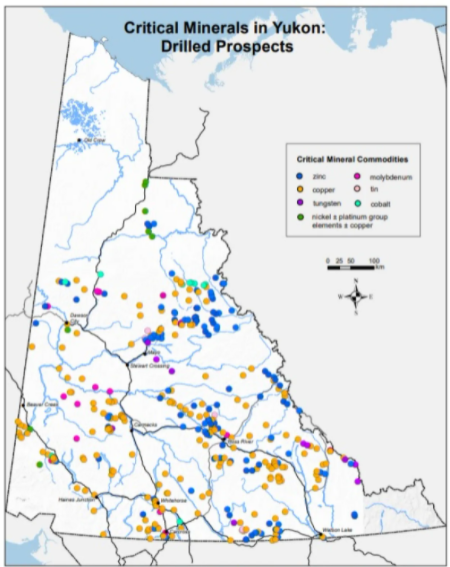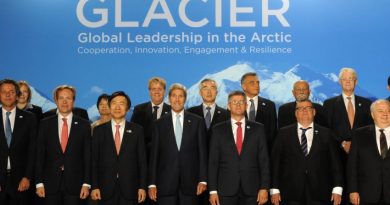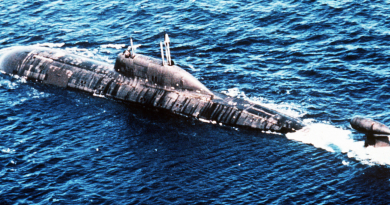How is the growing demand for minerals affecting northeastern Canada and the climate?

Inside electric car batteries is nickel. The mineral, which is found in the Yukon, may not have the same value as gold on the markets. But in some ways, that does not matter — a worldwide rush for minerals like nickel is in swing, and there’s no sign of that stopping as countries work to quickly pivot away from fossil fuels and decarbonize, according to experts.
There could be a rub. Extracting what are known as critical minerals — key components found not only in batteries but windmill turbines and solar panels — could increase greenhouse gas emissions.
“It’s kind of a Catch-22,” said Chelsea Hamilton, a mining engineer and financial assessor who was part of a panel on net zero mining hosted by the Yukon Chamber of Mines this week. “On the one hand, we want to protect our planet, the ecosystems for future generations and we want to create sustainability in our economy. On the other hand, if we want to protect our way of life, then we need more resources and we have to increase our mining activity substantially.”
While too soon to tell whether there’s more mining of critical minerals in the Yukon, there are signs that global shifts could affect that.
“For the last few years, we’ve been seeing a massive shift in the investor base, so new capital is entering the market that is attracted to technological advancements,” Hamilton added. “These investors want to support global decarbonization … and they understand that we need to produce critical minerals.
“And these investors are now facilitating this massive change in the industry.”
Carolyn Relf, the director of the Yukon Geological Survey, told CBC News the territory is seeing more exploration for critical minerals.
“It’s largely commodity-price driven, but I think the prices are going to start responding to societal needs and society is driving the interest in green energy and so that shift is coming [to the Yukon],” Relf said.

A report by the Yukon Geological Survey says that while the territory’s contribution of critical minerals to the supply chain is modest, there are “significant” deposits, namely copper, nickel, tungsten and zinc.
Of the 31 critical minerals listed by the federal government, only six have yet to be documented in the Yukon. They include aluminum, helium and potash.
The Yukon government wants to reduce emissions by 45 per cent by 2030. Part of that work includes eventually setting intensity-based targets for mines.
The report from the geological society says the Yukon government’s climate change plan, known as “Our Clean Future,” lays the groundwork for a critical minerals strategy.
Mining companies consider emerging technologies
The proposed Casino mine, west of Carmacks, would extract mostly gold but also copper, another critical metal.
It’s an off-grid project, which rules out tapping into hydroelectricity, a renewable energy source.
Paul West-Sells, the president and CEO of Western Copper and Gold, the company behind the Casino project, said there are workarounds. He said emerging carbon-free technologies such as hydrogen energy are promising.
“We’re actually speccing out our power plant, which right now is looking to use liquified natural gas, we’re actually developing it so we can use hydrogen,” West-Sells said.
“Hydrogen has no carbon. It’s something that is real, it’s a technology that’s almost there and it is something that can be implemented quickly.”
Mining analyst says land use planning comes first before more mining
Mining in all its many forms shouldn’t be characterized as the best use of the land, said Lewis Rifkind, mining analyst with the Yukon Conservation Society. That’s why he said land use planning needs to be prioritized.
“There does seem to be an air of promoting mining over this, but you have to remember there are other values that Yukoners assign to the land and mining is not necessarily the first and best,” RIfkind said. “To just extract metals because it’s the next gold or the next silver isn’t appropriate. We have to think ahead, how these metals are going to be extracted, how they’re going to be used and, overall, is it a positive environmental thing? We just don’t know.”
Rifkind also said there’s no guarantee that critical minerals will actually end up in an electric car battery or a solar array.
“They could just as well end up in huge, gas-guzzling SUVs,” he said. “[For] anybody to stand up and say, ‘The Yukon is a really good source of strategic minerals and it’s going to fund the green revolution’… It might. But there’s no guarantee that it will.”
Hamilton, the mining engineer, said some companies are deciding to purchase critical minerals from carbon neutral mines, adding that Tesla put out a call last year for “green nickel” — or, nickel produced in a climate-friendly way.
“Basically, [CEO Elon Musk] is talking about branding commodities,” she said.
“Yes, it will cost more upfront to build a mine that’s carbon-neutral or carbon-free or -negative, even, but if you do it, you will be able to sell your product at a premium.”
Related stories from around the North:
Canada: Pond Inlet woman’s intervention shakes up hearings on Baffinland mine expansion in Arctic Canada, CBC News
Greenland: Greenlandic government suspends oil exploration over climate concerns, Eye on the Arctic
Russia: Bolstered by battery boom, British mining company to dig nine new open pits in Russian Arctic, The Independent Barents Observer
Sweden: UN experts call on Sweden to halt mining project on Indigenous Sami land, Eye on the Arctic
United States: Interior Department report calls for higher oil and gas royalties, Alaska senator Murkowski objects, Alaska Public Media



